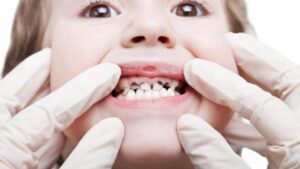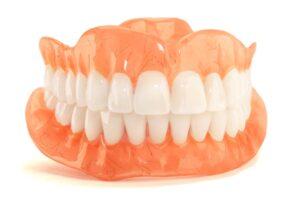
Dental crowning and bridging are restorative dental treatments available in Senawang, Malaysia. These treatments repair damaged or missing teeth, restore function, and improve the appearance of the smile. Professional consultation and care are available from dentists in Senawang.
What is Teeth Crowning & Bridging?
Teeth crowning and bridging are two well-liked techniques utilized in restorative dentistry to mend defective or lost teeth. Crowning, or dental caps as they are also called, requires fitting a tooth-shaped cap onto a weakened or damaged tooth to restore its utility and aesthetic. These crowns can be manufactured from a range of materials, such as porcelain, ceramic, or metal alloys. Conversely, bridging is a method utilized to replace one or more missing teeth by affixing an artificial tooth, or teeth, to neighboring natural teeth through dental crowns. The dental crowns are situated on the intact teeth flanking the gap, and the man-made tooth, or teeth, is then supported between them.
Benefits of Crowning & Bridging
Crowning and bridging are dental procedures that provide numerous benefits to patients. One of the primary advantages is the improvement in the appearance of damaged or missing teeth, which can boost a patient’s self-esteem and confidence. Furthermore, these treatments can restore proper chewing function, prevent additional damage or decay, and even help prevent gum disease by closing gaps where bacteria can accumulate.
Crowning involves covering a damaged or decayed tooth with a cap or crown made of materials like porcelain, metal, or ceramic. This protects the tooth from further damage and restores its natural shape and function. Crowns can also be used to improve the appearance of misshapen or discolored teeth.
On the other hand, bridging involves filling the gap created by a missing tooth with a prosthetic tooth, which is attached to the adjacent healthy teeth with the help of dental bridges. This not only restores the natural look of the teeth but also maintains proper bite and alignment.
Both crowning and bridging are effective and long-lasting dental treatments that require proper care and maintenance to ensure their durability. Patients should follow good oral hygiene practices like regular brushing, flossing, and dental check-ups to ensure the longevity of their crowns or bridges.
- Improved Appearance
- Restored Function
- Long-lasting Durability
- Prevention of Further Damage
- Protection after a Root Canal
- Boosted Self-esteem
Teeth Crowning & Bridging in Senawang
Klinik Pergigian Prima Senawang provides a range of dental treatments, including crowning and bridging, which are popular options for restoring damaged or missing teeth. Our experienced dentists and prosthodontists understand the importance of evaluating the potential benefits and risks of these procedures, and we work closely with our patients to determine the most suitable treatment plan for their unique needs.
We use high-quality materials, such as porcelain and metal, to create durable and natural-looking crowns and bridges that can enhance the appearance and function of damaged or missing teeth. Our team also takes great care to ensure that the natural teeth are properly prepared before the prosthetic devices are placed, and we provide personalized recommendations for proper oral care to reduce the risk of tooth decay or gum disease.
At Klinik Pergigian Prima Senawang, we prioritize patient comfort and satisfaction, and we strive to provide a welcoming and supportive environment for all our patients. If you are considering crowning or bridging as a dental treatment option, we encourage you to schedule a consultation with one of our skilled professionals to discuss your needs and explore your options.
Recent Posts

Gigi Rosak: Panduan Lengkap untuk Penjagaan dan Rawatan

Cara Hilangkan Bau Mulut dengan Mudah dan Berkesan
16/01/2025

Gigi Palsu Jenis, Harga, Prosedur & Tips Penjagaan
16/01/2025
Have Any Question?
Drop us a call or WhatsApp on your questions about orthodontics and we’ll reply to you shortly
Testimonial
What Customer Says About Crowning & Bridging
Our patients in Senawang have great experience with their teeth crowning and bridging
Friendly staff and doctor. Very recommended place to do a treatment. The price affordable.
Excellent dentist! Very caring, professional, take time to explain every procedures & provide valuable advice. Feel comfortable. Staff also very helpful & kind. Very pleasant indeed!
Alhamdulillah dapat buat rawatan scaling gigi untuk anak dengan doktor Izzah. Lembut je doktornye. Explain satu2 supaya anak tak takut. Buat rawatan gigi palsu yang fix untuk 1 unit gigi. Alhamdulillah memang puas hati. Tq doktor izzah layan kami dengan baik
Questions about Crowning in Senawang
A dental crown is a tooth-shaped cap that is placed over a damaged, weakened, or discolored tooth to restore its appearance and function. Crowns can be made from a variety of materials, including porcelain, ceramic, or metal alloys.
The process of getting a dental crown typically takes two appointments. During the first appointment, the tooth is prepared for the crown and impressions are taken. A temporary crown is placed while the permanent crown is being made. During the second appointment, the permanent crown is placed and adjusted for fit and function.
The process of getting a dental crown should not be painful, as the area is numbed with local anesthesia. Patients may experience some sensitivity or discomfort after the procedure, but this typically subsides within a few days.
Dental crowns can last for many years with proper care and maintenance. The lifespan of a crown depends on factors such as the material used, the patient's oral hygiene habits, and the location of the crown in the mouth.
As with any dental procedure, there are some risks associated with dental crowns, such as infection, sensitivity, or damage to the tooth or surrounding tissues. However, these risks are rare and can be minimized by choosing a reputable and experienced dental professional.
Questions about Bridging in Senawang
A dental bridge is a restorative dental treatment used to replace one or more missing teeth. It involves anchoring an artificial tooth (or teeth) to adjacent healthy teeth using dental crowns.
The lifespan of a dental bridge depends on factors like the patient's oral hygiene habits, the materials used, and the location of the bridge in the mouth. With proper care, a dental bridge can last for many years, and some can even last for decades.
There are several types of dental bridges, including traditional bridges, cantilever bridges, and Maryland bridges. The type of bridge recommended will depend on factors like the location of the missing tooth and the condition of adjacent teeth.
The process of getting a dental bridge is generally not painful. However, patients may experience some discomfort or sensitivity after the procedure as their mouth adjusts to the new bridge. This discomfort should subside within a few days.
Caring for a dental bridge involves regular brushing and flossing, as well as routine dental check-ups and cleanings. Patients should also avoid chewing on hard or sticky foods that could damage the bridge or dislodge it from the teeth.




